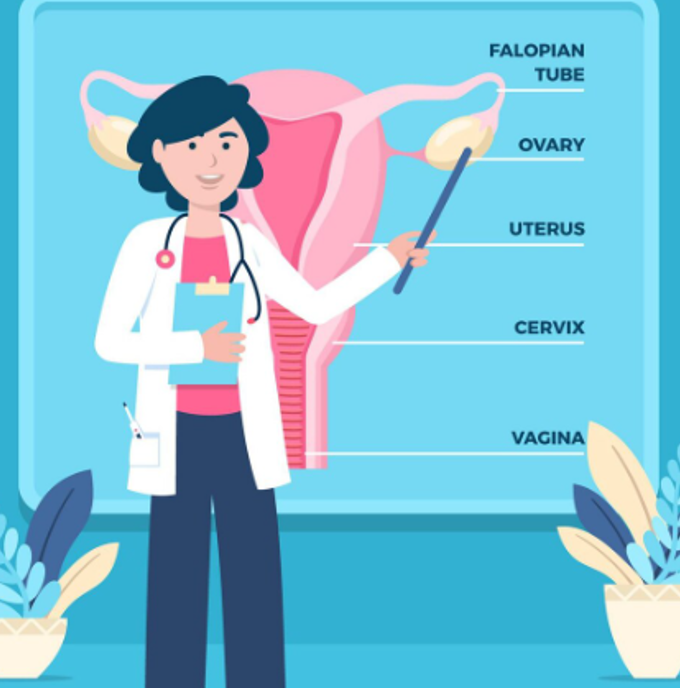Treatment Overview
Hormonal level testing for pelvic pain is a critical diagnostic process used to evaluate the role of hormonal imbalances in causing chronic or acute pelvic discomfort. Hormones regulate many reproductive and systemic functions, and deviations from normal levels can contribute to conditions such as endometriosis, polycystic ovary syndrome (PCOS), adenomyosis, ovarian cysts, and menstrual irregularities — all common causes of pelvic pain.
In Korea, hormonal level testing is integrated into comprehensive gynecologic care. Hospitals and specialized women’s health centers offer precise, multi-panel hormone tests to identify imbalances and guide personalized treatment plans. Korea’s healthcare system combines high-quality laboratory services with expert interpretation, making it a leading destination for accurate pelvic pain evaluation.
Purpose & Benefits
The purpose of hormonal level testing is to identify abnormalities in hormones such as estrogen, progesterone, luteinizing hormone (LH), follicle-stimulating hormone (FSH), prolactin, testosterone, and thyroid hormones — all of which can influence pelvic pain and reproductive health.
Benefits of undergoing hormonal testing in Korea include:
- Accurate diagnosis: Korean laboratories use advanced immunoassays and mass spectrometry for precise hormone quantification.
- Personalized treatment: Results allow gynecologists to tailor therapy to each patient’s hormonal profile.
- Prevention of long-term complications: Early detection of hormonal imbalances can prevent fertility issues and chronic pelvic conditions.
- Integration with other diagnostics: Often combined with ultrasound, laparoscopy, or endometrial biopsy for comprehensive pelvic pain evaluation.
This approach ensures that treatment is not just symptomatic but addresses the underlying causes of pelvic pain.
Ideal Candidates
Hormonal level testing is recommended for women who experience:
- Chronic pelvic pain without clear structural cause.
- Severe menstrual pain or irregular cycles.
- Infertility or repeated pregnancy loss.
- Signs of hormonal imbalance such as acne, hair loss, or weight changes.
- Symptoms of thyroid disorders.
Korean clinics cater to both local and international patients, offering consultation services in English and detailed explanations of results. Testing is often part of a holistic women’s health evaluation package.
Possible Risks & Complications
Hormonal testing is generally safe and involves minimal risk. Common minor considerations include:
- Slight discomfort during blood sample collection.
- Temporary bruising at the puncture site.
Korean clinics follow strict safety and hygiene protocols, ensuring that procedures are carried out in controlled, comfortable environments.
Techniques Used
Hormonal level testing in Korea involves highly advanced laboratory techniques:
- Serum hormone analysis: Blood samples are tested for levels of key reproductive and endocrine hormones.
- Immunoassays: Provide precise detection of hormone concentrations.
- Mass spectrometry: Offers high accuracy for complex hormone profiling.
- Dynamic hormonal testing: Involves repeated sampling at different cycle phases to assess fluctuations.
These methods allow Korean specialists to deliver highly reliable results that form the foundation for effective treatment plans.
Recovery & Aftercare
Hormonal testing requires no recovery time, and patients can resume normal activities immediately. After the test, patients may be given guidance on:
- Timing for follow-up consultations.
- Interpreting results with the gynecologist.
- Lifestyle adjustments to support hormonal balance.
Many Korean clinics provide a comprehensive aftercare program, including counseling and nutritional guidance.
Results & Longevity
Results from hormonal level testing are usually available within a few days, with some high-end facilities providing rapid same-day analysis. The accuracy of these results allows for targeted treatment plans that can significantly improve pelvic pain outcomes.
While hormone levels can change over time, testing provides a snapshot that helps in ongoing management. Periodic re-testing is often advised, especially for women undergoing hormonal therapy or fertility treatment.
Treatment Process in Korea
In Korea, hormonal level testing for pelvic pain begins with a detailed consultation with a gynecologist or reproductive endocrinologist. This includes reviewing symptoms, medical history, and other diagnostic tests. The process typically includes:
- Scheduling the test during a specific phase of the menstrual cycle if required.
- Blood sample collection by trained phlebotomists.
- Advanced laboratory analysis using cutting-edge equipment.
- Consultation to interpret results and determine treatment options.
Korean healthcare providers combine this testing with advanced gynecologic imaging, genetic testing, and minimally invasive procedures to deliver a holistic diagnosis. Korea’s leadership in women’s health is underpinned by its use of technology such as AI-assisted diagnostics and high-throughput hormone testing systems. This precision medicine approach makes Korea a top destination for hormonal evaluation.
Cost Range
The cost of hormonal level testing in Korea varies depending on the number of hormones tested and the complexity of the panel:
- Basic hormonal panel: ₩150,000–₩250,000 KRW ($120–$200 USD).
- Comprehensive reproductive hormone panel: ₩300,000–₩600,000 KRW ($240–$480 USD).
- Specialized dynamic hormonal tests: ₩700,000–₩1,200,000 KRW ($560–$960 USD).
Many Korean clinics offer integrated pelvic pain evaluation packages that include hormonal testing, ultrasound, and gynecologic consultation, costing between ₩800,000–₩1,500,000 KRW ($640–$1,200 USD).
Popular Clinics in Korea
- Samsung Medical Center — Advanced hormonal profiling with integrated gynecologic care.
- Asan Medical Center — Comprehensive women’s health evaluation, including endocrine testing.
- CHA Bundang Women’s Hospital — Specializes in reproductive hormone analysis.
- Severance Hospital, Yonsei University — Cutting-edge diagnostics and patient-centered care.
- Gangnam Women’s Health Clinic — Personalized hormonal testing programs for international patients.




